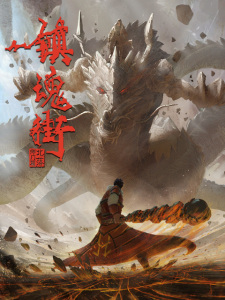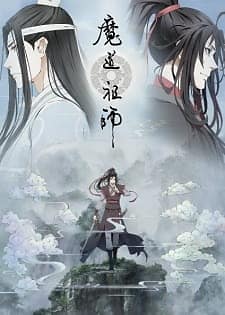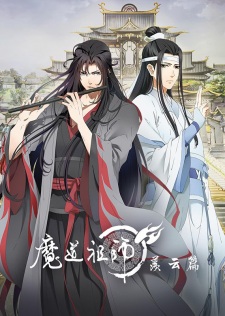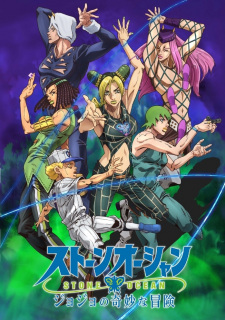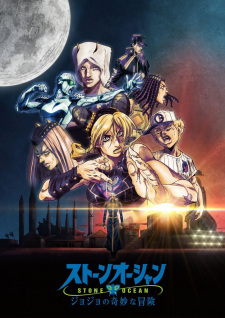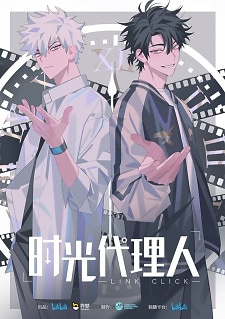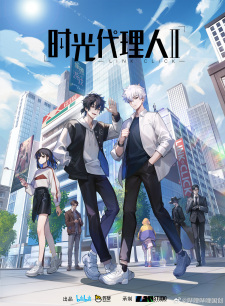Jul 12, 2021
Zhen Hun Jie, also known as Rakshasa Street, is an anime adaptation of a manhua by the same name. As with any other adaptation, the producers tread a fine line between taking artistic liberties and staying faithful to the source material.
Preamble: (some background for confused anime watchers)
If you are reading this review, you were likely attracted to this series through the huge success of Season 1, which presented a unique Yin-Yang style of storytelling which showcased the deep bond between two brothers. Season 1 was hugely experimental, but it was successful in that it retained the basic feel of the manhua, while adding more
...
depth of emotion through flashbacks, new characters, and the cutting of some unnecessary details from the manhua. It was successful precisely because it adapted the single weakest arc from the source material (in which the author Xu Chen was still developing his style and trying to gain popularity), and made certain strategic changes that, while being somewhat controversial in the manhua community, were generally well received in light of the anime’s overall success.
It was in this atmosphere of success that Zhen Hun Jie Season 2 Part 1 was announced. Both anime-onlys and manhua-readers had high hopes for the series, and it certainly seemed to be living up to expectations. While the excessive CGI for fight scenes was a little off-putting, I think most watchers would agree that the general flow of the story in the first two episodes was definitely on par with Season 1. The anime-onlys were pleased by the new setting and story, while the manhua-readers were curious to see how the removed details that were supposed to be in Season 1 would be added to enhance Season 2. What nobody expected, however, was an abrupt break after only 5 episodes of the series, and the return of a Remake (or Part 2) that baffled everybody.
This, Zhen Hun Jie: Bei Luo Shi Men Pian Part 2, is that Remake of Part 1. The first three episodes are entirely old content, which presents a condensed version of Part 1. Episode 4 marks the point where the director gave up halfway through his original draft and decided “screw it, I’m out of good story ideas, let’s just go back to faithfully rendering every frame of the original manhua.” Whether that is in response to disillusioned manhua readers who grew displeased with the development of the story in Part 1, or whether it was due to something else entirely, I do not know. In the review below, I will focus on my thoughts on the quality of the remake, and what I personally think could have been done differently.
Body: (actual review starts here)
Story 6/10 - If the first arc of Rakshasa Street showcased the bond between “blood brothers”, then this second arc develops that tension to “found family”. The story is action-packed, with good inclusion of flashback scenes for emotion building and conflict/intrigue to entice the viewer into wanting more. If you look at the first 3 episodes alone or the last 6 episodes alone, they would both be solid 7-8/10. However, the problem arises in that the initial 3 episodes have very little to do with the remaining episodes. Because while the initial episodes showcase anime-original content, the later episodes are entirely verbatim from the manhua, and the resulting plot holes that come out of the discontinuity are TERRIBLY explained.
Art 7/10 - Similar to the story, the art style of the first 3 episodes is very different from the remaining episodes. Personally, I actually enjoyed the later art style better because it is more faithful to the manhua that I originally fell in love with. I also think it was a good choice to ditch the 3D animation, because while it was very flashy, it was overly distracting. The animation suffers a bit from budget limitations, as there is decent proportion of resting/panning shots in which the only thing that distinguishes the anime from a PowerPoint presentation is a single set of moving lips or a few strands of flowing hair. However, I think given the difficulty of the adaptation, the animators did a fairly decent job.
Sound 6/10 - The sound is a bit of hit-and-miss. While there are some moments where I thought “wow, the BGM is an amazing fit for the action”, there are other parts where I cringed at the choice. The producers recycled the original three theme songs from Season 1 to use for Season 2, which I thought was a good choice since they convey the right motifs of “baddassery”, “melancholy”, and “the journey continues”, respectively. I was less impressed by the other musical inserts, because they were a very strange blend of eastern and western music that just don’t go coherently together. In one scene, you would get a cover of “Silent Night”, a classic Christmas carol, while in the following scene you would get an OST taken straight from the 1997 version of the Monkey King. Normally, I would not be so picky about the sound, but since it is the one thing that could easily be changed to unify two otherwise completely disjoint segments of animation and storytelling, I cannot help but be disappointed by the lack of attention to detail in this matter.
Character 7/10 - In terms of main characters, I personally love Bei Luo Shi Men. He’s a great character with a well developed backstory and clearly explained motives. I also like Cao Yan Bing for his bravery and pigheadedness. Xia Ling is the only main character I never felt much for, but she gets some character development here that makes her easier to tolerate. Unfortunately, the character development was not treated well due to the random addition and subtraction of plot points, which means I can’t give more than 7/10 in this category. There’s also the issue of the “Guardian Spirits” not having enough screen time outside of fight scenes which makes them seem more like mecha robots than dead historical figures...but that is another can of worms. Does anybody else feel like this season turned into Three Kingdoms x Evangelion?
Enjoyment 7/10 - Overall, I think I enjoyed this season. While it suffered from numerous problems, it ended on a strong note that makes me hopeful for Season 3. If you are reading this review and have yet to watch the series, I recommend reading chapters 1-26 of the manhua first before starting Part 2. A lot of the abrupt changes will make more sense, and you can get a relatively enjoyable experience.
Overall: (concluding rant)
As a faithful manhua adaptation, the second half of Season 2 is strong and enjoyable. As an anime-original, the first half of Season 2 has its merits. However, blended together, the two halves just DO NOT go well together. The character I feel the most sorry for is Bai Shuier, who was given a horrendous treatment due to having two conflicting backstories that imposed dissociative identity disorder on an individual who already has enough mental trauma on her plate.
I really believe what would have made this season so much stronger was to remake the entirety of the Bei Luo arc. Not too much was changed in Season 1, which the director could have easily explained in half an episode AT THE BEGINNING of the arc. Then they could have gotten away with doing a full faithful manhua adaptation from that point forward with limited problems and I wouldn’t have to write such a huge review just to establish the context of everything I’m talking about.
Hopefully you found this review to be decently informative. Thank you for taking your time to read my thoughts on the matter.
Reviewer’s Rating: 7
What did you think of this review?
Nice
 0
0
Love it
 0
0
Funny
 0
0
Confusing
 0
0
Well-written
 0
0
Creative
 0
0Show all
